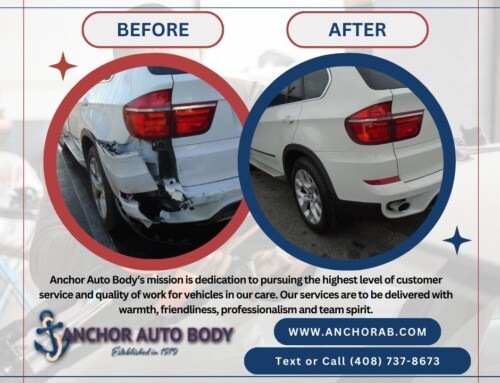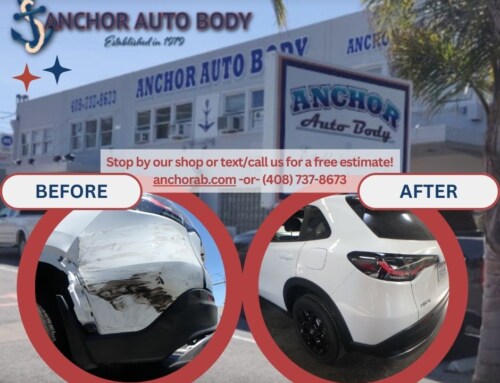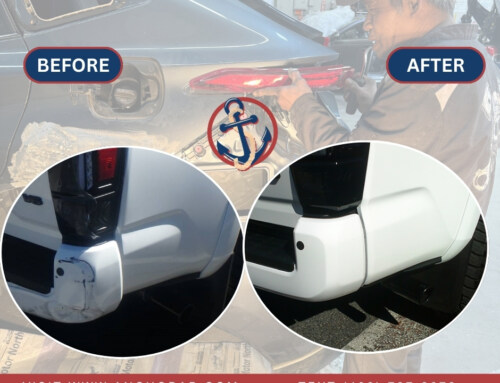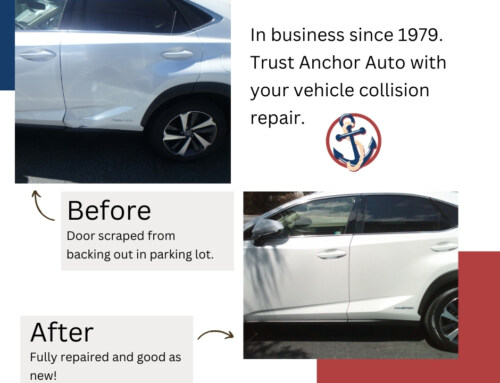The Differences Between Paint Scratches, How to Fix Them, and What Happens if You Ignore Them
Owning a car comes with the inevitable risk of cosmetic damage, and among the most common forms of damage are paint scratches. Whether it’s caused by a rogue shopping cart, an unfortunate run-in with a tree branch, or a minor accident, paint scratches can vary in severity. Understanding the different types of scratches and how to address them is key to maintaining your car’s aesthetic and structural integrity. Let’s explore the types of paint scratches, how to repair them, and the consequences of leaving them untreated.

Types of Paint Scratches
- Clear Coat Scratches The most common and least severe type of paint scratch is a clear coat scratch. The clear coat is the topmost protective layer on your car’s paint, designed to safeguard the underlying paint and add a glossy finish. Clear coat scratches occur when this outer layer is lightly damaged, typically by contact with branches, shopping carts, or even automatic car washes that use abrasive materials. These scratches do not penetrate the paint or primer.
- Paint Scratches Paint scratches are more severe than clear coat scratches because they penetrate deeper into the color layer of your vehicle’s paint. These scratches can result from more forceful contact, such as minor collisions or keying incidents. When the paint layer is compromised, it exposes the primer beneath, making the damage much more visible and leaving the car vulnerable to further harm.
- Primer Scratches Primer scratches go even deeper, cutting through the clear coat and paint to expose the primer layer. These are often the result of more significant accidents or intentional acts of vandalism. While they don’t reach the bare metal, primer scratches leave your car less protected from environmental factors like moisture, which can lead to corrosion and rust.
- Deep Scratches (Metal Exposed) The most serious type of paint damage is a deep scratch that cuts through all layers of the car’s paint, exposing the metal body. This type of scratch often occurs from significant impacts, like car crashes or deep gouges. Once the metal is exposed, the vehicle is at risk for rust, which can severely weaken the structural integrity over time.
How to Fix Paint Scratches
- Clear Coat Scratches Clear coat scratches are relatively easy to fix and don’t require extensive work. Often, they can be polished out using a rubbing compound or scratch remover. This process involves gently buffing the surface of the scratch to restore the shine and smooth out the clear coat. In most cases, clear coat scratches can be handled at home with over-the-counter products.
- Paint Scratches When the scratch reaches the paint layer, you’ll need to take additional steps beyond just polishing. Start by cleaning the affected area to remove any debris. Touch-up paint, matched to your vehicle’s color code, can be applied to the scratch. After allowing the paint to dry, you can apply a clear coat to restore the glossy finish. For best results, follow up with light sanding and polishing to blend the repair seamlessly with the rest of the vehicle.
- Primer Scratches Fixing a primer scratch requires more detailed work. The area needs to be cleaned, and any rust or debris should be removed. Apply a primer layer first, then follow up with matching touch-up paint. After the paint dries, finish with a clear coat application and polish the area. Primer scratches might require a professional to ensure the paint matches perfectly and the finish is smooth.
- Deep Scratches Deep scratches that expose the metal of the vehicle should be addressed as soon as possible to avoid rust formation. These scratches often require sanding down the affected area, applying a rust inhibitor if necessary, and then following the same steps as primer scratches—applying primer, touch-up paint, clear coat, and polishing. Due to the severity of deep scratches, it’s often best to leave these repairs to a professional.

What Happens If You Ignore Paint Scratches?
Ignoring paint scratches might seem harmless, especially if they are minor or only cosmetic. However, neglecting these issues can lead to several complications over time:
- Rust Formation When a scratch exposes the metal underneath the paint layers, the vehicle is vulnerable to moisture. Over time, this moisture can lead to oxidation, causing rust to form. Rust not only compromises the look of your car but can spread and cause structural damage. If left untreated, rust can weaken the metal, leading to expensive repairs.
- Decreased Resale Value Even if the damage seems minor, visible scratches can drastically reduce the resale value of your car. Buyers often perceive cosmetic damage as a sign that the vehicle hasn’t been well-maintained, which can lead to a lower asking price.
- Further Paint Damage Small scratches can lead to further damage if left unattended. Environmental factors such as sunlight, dirt, and rain can cause the paint to degrade further. What begins as a small scratch could widen or deepen over time, leading to larger repair costs.
- Compromised Protection The paint on your vehicle is more than just for aesthetics; it serves as a protective barrier against the elements. When the clear coat or paint is scratched, your vehicle loses part of that protective layer, leaving it susceptible to further damage from UV rays, rain, and pollutants.
Why Choose Anchor Auto Body?
At Anchor Auto Body, we specialize in fixing all types of paint damage, from minor clear coat scratches to deep gouges that expose the metal beneath. Our experienced technicians use advanced repair techniques and high-quality materials to ensure your car looks as good as new. We understand the importance of maintaining your car’s appearance and integrity, which is why we take every repair seriously, no matter how small.
Whether it’s a quick polish or a more involved repaint, we do the best San Jose Auto Repair and are equipped to handle the job with precision and care. Don’t let a small scratch turn into a bigger problem—contact us today to keep your car looking and performing its best!

